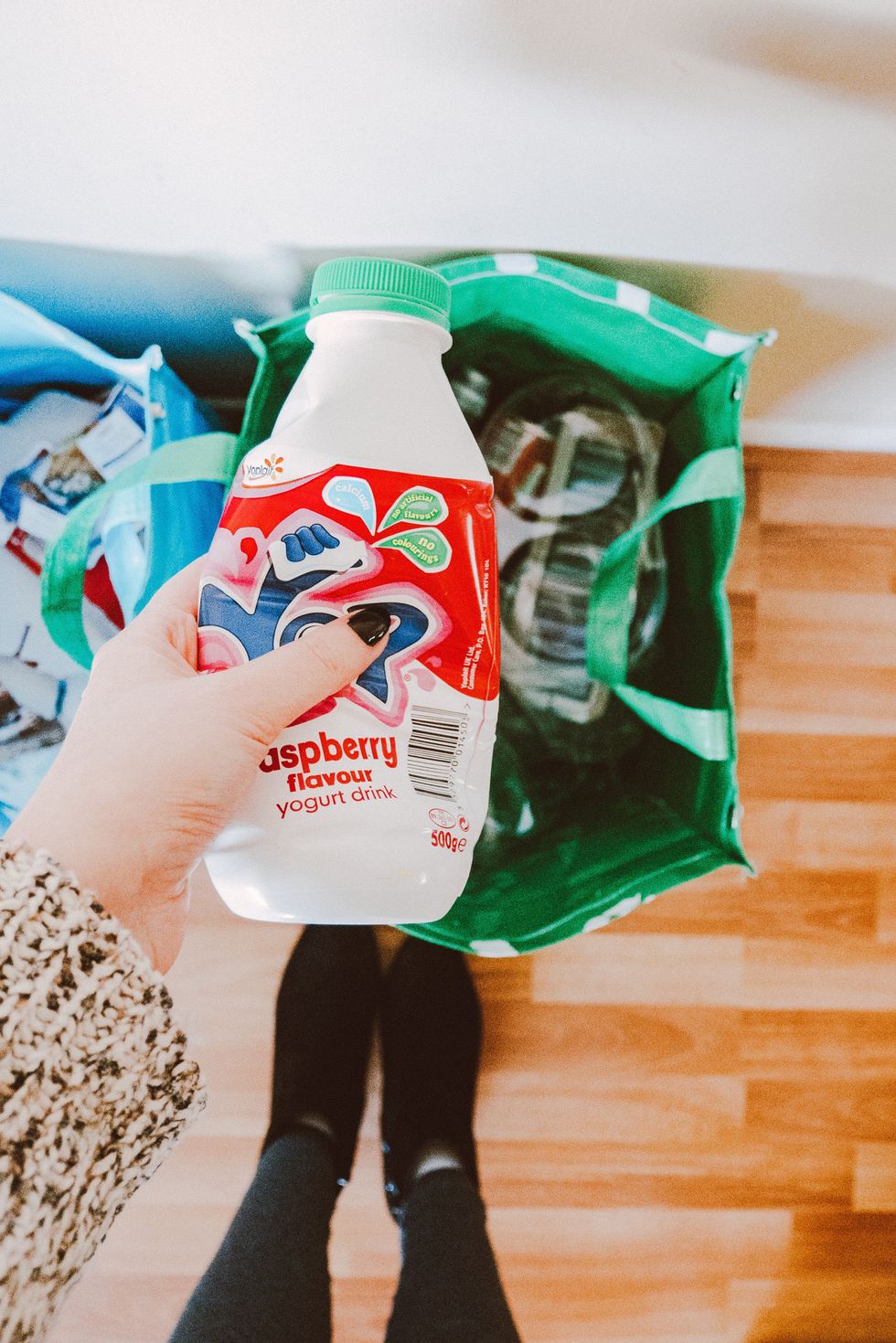A growing number of women and business leaders are standing up for the environment.
Around the world, thousands of tons of non-biodegradable plastic tampon applicators make their way through municipal sanitation systems that aren't designed to manage solid waste. Researchers estimate that it takes approximately 500 years for them to degrade. Meanwhile, the global ecosystem suffers.
70% of women use disposal tampons with plastic applicators, according to the Women's Voices for the Earth organization. However, as society becomes more conscious of the environment, there's a growing interest in eco-friendly alternatives.
Statistics Tell a Disheartening Story
A study reveals that the top two uses for plastic in 2015 were packaging (42%) and construction (19%). The "in-use" life cycle of plastic packaging is approximately six months or less, while in construction it averages 35 years.
The countries that used the most plastic were – in no particular order – Germany, Guyana, Ireland, Kuwait, the Netherlands and the United States, which used ten times more plastic than countries such as Bangladesh, India, Mozambique and Tanzania. Among high-income countries with effective sanitation systems, there's nearly no inadequately managed plastic waste – although this doesn't mean that there's no risk of plastics entering the environment in these regions.
Among low to middle-income countries, however, businesses and consumers dispose of nearly 80% to 90% of plastics improperly, polluting rivers and oceans.
Another part of the problem encompasses a strong presence of inadequate plastic waste management in Asia. China produces 28% of the world's plastic waste, while Indonesia generates 10%.
These statistics highlight a few facts about the massive volume of plastic waste created by society, but only touch on how it threatens the world's waterways.
Researchers estimate that nearly 300,000 tons of plastic waste floats on the surface of the ocean – which doesn't account for debris that drifts underwater or settles on the seafloor. Furthermore, researchers estimate that plastic surface contaminants account for 5 trillion particles floating on the surface of the world's seas.
How Menstruation Products Became a Global Eco-Threat
Women came to use plastic applicators due to a combination of technological and societal influences according to a National Geographic expose.
A Colorado physician, Earle Cleveland Haas, filed for the first tampon patent in 1933. In 1973, manufactures introduced dome tipped applicators. At the time, 70% of American women use tampons. Now, women in the United States purchase approximately 6 billion tampons annually.
On average, American women menstruate until the age of 40, for approximately five days per month – which translates into 2,400 days or six and a half years in total during their lifetime during which a single woman may use between 5,000 to 15,000 pads and tampons. Most plastic waste from those sanitary products ends up in landfills.
Although plastic applicators are recyclable, most municipalities do not accept them due to sanitary reasons. Resultantly, a considerable percentage of women flush them down the toilet, where they make their way to the ocean after the sewer system fails to contain the waste.
Leading the Way in Eco-Friendly Alternatives
Environmental advocate Ella Daish is campaigning to compel manufacturers and officials to work toward removing plastic from women's sanitary products. In Europe, sanitary products litter the region's beaches, and 200,000 tons of the products make their way to United Kingdom landfills.
Although the plastic used for women sanitary products is a global issue, laments Daish, there's little conversation about the problem. Nevertheless, sanitary products are the fifth most common items found on European beaches.
A growing number of manufacturers are working toward remedying the issue. For instance, makers of women's sanitary products have created innovations such as reusable cups and disks that lessen the impact of plastics on the environment.
Companies such as Dame, Freda and TOTM now manufacture eco-friendly women's products. Dame, for instance, is a woman-owned enterprise whose success made them realize that they were contributing to the problem of global pollution. Resultantly, they created the D-applicator, which they designed so that women can reuse them indefinitely.
Menstrual health is essential for the overall well-being of women. However, a growing number of women around the world aren't willing to sacrifice the welfare of the planet for their health needs.
The habits of today's throwaway culture are starting to become apparent. Now, a growing number of people realize that there are consequences for every action that they take. As a result, environmental advocates are pushing for legislative changes that will protect the environment and society.




 Going to the cinema alone is good for your mental health, says science
Going to the cinema alone is good for your mental health, says science












 women in street dancing
Photo by
women in street dancing
Photo by  man and woman standing in front of louver door
Photo by
man and woman standing in front of louver door
Photo by  man in black t-shirt holding coca cola bottle
Photo by
man in black t-shirt holding coca cola bottle
Photo by  red and white coca cola signage
Photo by
red and white coca cola signage
Photo by  man holding luggage photo
Photo by
man holding luggage photo
Photo by  topless boy in blue denim jeans riding red bicycle during daytime
Photo by
topless boy in blue denim jeans riding red bicycle during daytime
Photo by  trust spelled with wooden letter blocks on a table
Photo by
trust spelled with wooden letter blocks on a table
Photo by  Everyone is Welcome signage
Photo by
Everyone is Welcome signage
Photo by  man with cap and background with red and pink wall l
Photo by
man with cap and background with red and pink wall l
Photo by  difficult roads lead to beautiful destinations desk decor
Photo by
difficult roads lead to beautiful destinations desk decor
Photo by  photography of woman pointing her finger near an man
Photo by
photography of woman pointing her finger near an man
Photo by  closeup photography of woman smiling
Photo by
closeup photography of woman smiling
Photo by  a man doing a trick on a skateboard
Photo by
a man doing a trick on a skateboard
Photo by  two men
two men  running man on bridge
Photo by
running man on bridge
Photo by  orange white and black bag
Photo by
orange white and black bag
Photo by  girl sitting on gray rocks
Photo by
girl sitting on gray rocks
Photo by  assorted-color painted wall with painting materials
Photo by
assorted-color painted wall with painting materials
Photo by  three women sitting on brown wooden bench
Photo by
three women sitting on brown wooden bench
Photo by 
 Photo by
Photo by  Photo by
Photo by  Photo by
Photo by  Photo by
Photo by 


 people sitting on chair in front of computer
people sitting on chair in front of computer



 all stars lol GIF by Lifetime
all stars lol GIF by Lifetime two women talking while looking at laptop computerPhoto by
two women talking while looking at laptop computerPhoto by  shallow focus photography of two boys doing wacky facesPhoto by
shallow focus photography of two boys doing wacky facesPhoto by  happy birthday balloons with happy birthday textPhoto by
happy birthday balloons with happy birthday textPhoto by  itty-bitty living space." | The Genie shows Aladdin how… | Flickr
itty-bitty living space." | The Genie shows Aladdin how… | Flickr shallow focus photography of dog and catPhoto by
shallow focus photography of dog and catPhoto by  yellow Volkswagen van on roadPhoto by
yellow Volkswagen van on roadPhoto by  orange i have a crush on you neon light signagePhoto by
orange i have a crush on you neon light signagePhoto by  5 Tattoos Artist That Will Make You Want A Tattoo
5 Tattoos Artist That Will Make You Want A Tattoo woman biting pencil while sitting on chair in front of computer during daytimePhoto by
woman biting pencil while sitting on chair in front of computer during daytimePhoto by  a scrabbled wooden block spelling the word prizePhoto by
a scrabbled wooden block spelling the word prizePhoto by 








